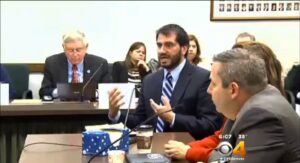In 2015, Colorado became the 47th state to enact a felony DUI law. Under the new law, individuals who receive a fourth-strike DUI conviction face the possibility of spending multiple years in prison and paying tens or even hundreds of thousands of dollars in fines. The latest changes to the statute, in effect on August 9th, 2017, set minimum mandatory sentences for felony DUI convictions. Subsequent court decisions, such as People v. Herold (2024 COA 53, No. 22CA1265), discuss the burden of proof regarding prior DUI convictions. Recent case law, such as People v. Schlehuber, a 2025 Colorado Court of Appeals case (No. 23CA1576), instruct how trial courts should present prior DUI convictions to a jury.
Clearly, if you are facing a fourth DUI charge, you need the absolute best legal representation you can afford. Judges have broad discretion in imposing penalties under Colorado’s felony DUI law. Individuals with an aggressive, impassioned advocate will have the best chance of minimizing the repercussions of their arrest. Attorney Jay Tiftickjian has been a vocal opponent of Colorado’s DUI law, and is committed to helping clients avoid its harsh, punitive consequences.

Jay Tiftickjian testifying at the Colorado Senate against Felony DUI
What Colorado’s Felony DUI Law Means for You
Prior to enactment of Colorado’s felony DUI law, a fourth conviction was treated similarly to a third offense: In the absence of any aggravating circumstances (such as an accident with serious bodily injury or leaving the scene of an accident with injury), the maximum jail sentence was one year and possible fines maxed out at fifteen hundred dollars.

Jay Tiftickjian testifying to the Colorado Senate against the feony DUI bill
Now, however, the potential consequences are much more severe. Under Colorado’s felony DUI law, a fourth-strike DUI offense can be charged as a Class IV felony, carrying up to a six-year prison sentence and $500,000 in fines. This means that you can now face the same penalties as a repeat offender who caused an accident with serious injuries, just because you were driving slightly above the legal limit or while impaired to the slightest degree.
Other key facts about the law include:
- For purposes of counting convictions, the law considers not only Colorado DUI and DWAI convictions, but drunk driving or impaired driving convictions from any state in the country over the course of your lifetime.
- Prior convictions for DUI, DWAI (driving while ability impaired), vehicular assault, and vehicular homicide all count toward the four-strike felony DUI threshold.
- If you are facing felony charges, your case will be heard in District Court – not the County Courts that try misdemeanor DUI cases.
- While prison time is not mandatory, the Colorado legislature has estimated that well over 100 people will receive felony prison sentences for DUIs each year and in 2016 over 30 percent of felony DUI offenders received a prison sentence.
- Effective August 9, 2017, if a Judge sentences a Defendant to probation, the court must order one of the following:
- Require the defendant to serve at least 90 days but not more than 180 days imprisonment in the county jail. During the mandatory 90-day period of imprisonment, the defendant is not eligible for good-time deductions of his or her sentence or for trusty prisoner status; except that a defendant receives credit for any time that he or she served in custody for the violation prior to his or her conviction.
- Require the defendant to serve at least 120 days but not more than 2 years of imprisonment in the county jail through participation in an alternative sentencing program if such programs are available through the county in which the defendant is imprisoned and only for certain purposes. During the mandatory 120-day period of imprisonment, the defendant is not eligible for good-time deductions of his or her sentence or for trusty prisoner status; except that a defendant receives credit for any time that he or she served in custody for the violation prior to his or her conviction.
- Additionally, the law states that if the court sentences such an offender to a term of probation, the court, as a condition of probation, shall:
- Require the defendant to complete at least 48 hours but not more than 120 hours of useful public service, which may not be suspended.
- Include, as a condition of the defendant’s probation, a requirement that the defendant complete a level II alcohol and drug driving safety education or treatment program at the defendant’s own expense; and
- Consider imposing certain other conditions of probation.
The law imposes its harsh penalties despite the clear evidence that rehabilitation, rather than punishment, is the best way to curb DUI recidivism.
Avoiding Felony Punishment for a Fourth DUI Arrest
While prison time is common for convicted felons, it is not mandatory for a fourth DUI arrest. As in other cases, judges have significant leeway to issue punishment as they see fit. However, since almost all judges impose close to the maximum jail sentence for third DUI convictions, those facing a fourth conviction can realistically expect to face serious prison time without a solid defense. The factors judges consider in felony DUI cases include:
- Whether “incarceration is the most suitable option given the facts and circumstances of the case.”
- The defendant’s willingness to participate in alcohol treatment, and whether treatment appears likely to be successful.
- Whether a decision against long-term imprisonment would present an “unacceptable risk to public safety.”
As you can see, these are highly subjective criteria for a decision that can significantly impact the rest of your life. At Tiftickjian Law Firm, P.C., we have extensive experience vigorously defending clients accused of driving under the influence in Colorado. If you are facing charges for a fourth-strike DUI, we will explore all possible defenses and fight aggressively to help you avoid a felony conviction.
Felony DUI History Collection
Learn more about why attorney Jay Tiftickjian has opposed Colorado’s felony DUI law, 4 reasons Colorado should have nixed the proposed felony DUI bill for repeat offenders and read about the law’s history in our multi-part series:
- History of Colorado Felony DUI – “A Short History of Colorado’s Felony DUI Bills and Laws”
- History of Colorado Felony DUI – Part 1 “Which Came First? The Felony or the DUI?”
- History of Colorado Felony DUI – Part 2 “The Rough Road to Freedom”
- History of Colorado Felony DUI – Part 3 “Colorado, Felonies and The First DUI”
- History of Colorado Felony DUI – Part 4 “Discovery and Diversity – the 1900s”
Speak with a Denver, CO Felony DUI Attorney Today
Thanks to Colorado’s felony DUI law, drivers can now face truly life-changing consequences even for routine DUI arrests. If you have been arrested for DUI and have three or more prior convictions on your record, we encourage you to contact us immediately to start building your defense. To schedule a consultation with one of our experienced defense attorneys, contact us online or call (303) 384-5280 today.
